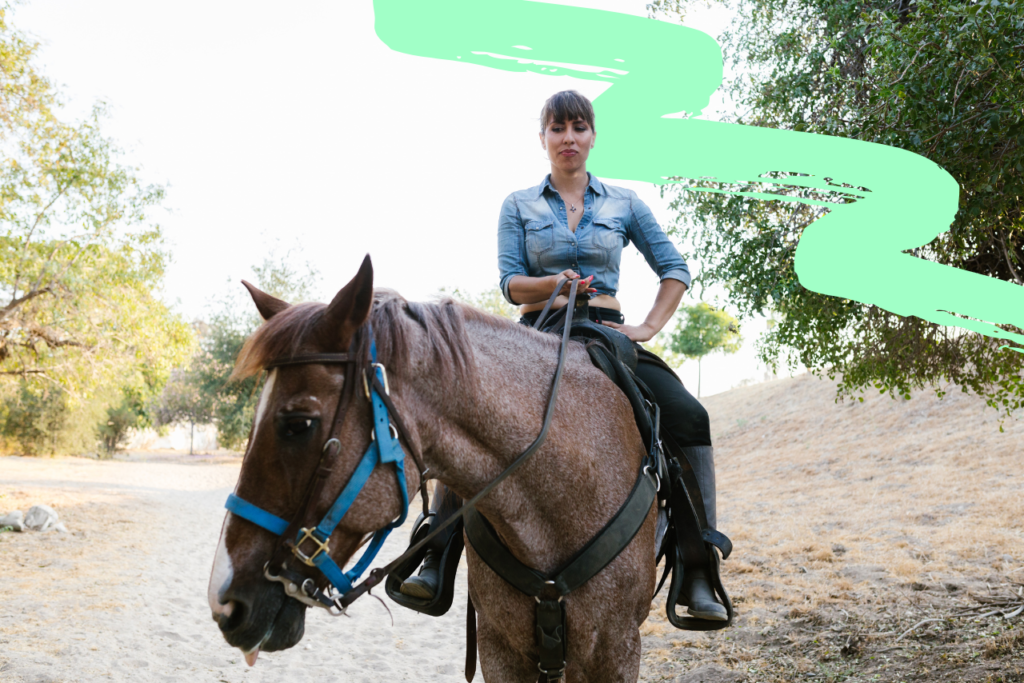It seems a David and Goliath-esque struggle that shouldn’t merit an entire article being written about it, let alone the stress horse owners feel about the threat. But, perhaps surprisingly to the uninitiated, insects can pose a serious risk to these most majestic of beasts.
This is particularly true in the summer season, with flies, mosquitos, lice and mites able to cause both irritation and disease to horses, even via the smallest of pecks.
As we mentioned, the type of pest most prevalent to horses largely falls into two categories; those who cause a nuisance and stress, and those who present a risk to your horse’s health through transmitting disease, either by feeding on their blood, saliva or tear ducts.
If you’re keen to ensure your horse is healthy and happy, then you’ll want to protect them from both broad categories of insect this and every summer. Here’s how to do just that…
Fly Masks
Face and house flies are perhaps the single most irritating insect to horses during the summer months. Looking similar to the common house fly, face flies are nothing if not persistent, drawn to a horse’s tear ducts, nostrils and to any possible exposed wounds.
This can cause stress and agitation in your horse, leading to them stomping and lashing out in a bid to swat the flies away. But with these flies so proliferant in summer, this is usually a fairly futile gesture, and can lead to your horse only getting more wound up.
Many owners, then, choose to deploy a Kentucky fly mask during the summer months, which offers protection against flies and other insects. This is a highly breathable mesh mask that covers the horse’s face, nose and eyes, which are the areas face flies are most drawn to.
It should be noted that both these pesky fly species breed in fresh animal manure, which brings us to our next tip…

Manure Management
You might want to old your nose for this one…
While eliminating insects is impossible, modifying stable management practices helps reduce your horse’s interactions with flies. Because prevention is better than cure, and all that.
The first step involves collecting and disposing of any and all manure appropriately. Manure attracts flies, meaning horse owners should strive to maintain cleanliness in their stalls. Doing so eliminates areas where insects are especially drawn to and will naturally gather.
Eliminating manure from horse pastures is an excellent method of preventing the spread of internal and external flies. Where the total removal of manure is impossible, breaking up chunks of manure should be your contingency plan, as this exposes more of the manure’s surface area to sunlight, drying it out. Flies tend to prefer the wet, fresh stuff. Mmmmm…
Joking aside, when searching for a horse stable for sale, do ensure that it includes proper facilities for effective manure management to maintain a clean and pest-free environment.
Use Specially Designed Protective Gear For The Horse
Providing protective gear to horses that are sensitive to insects can be a wise move, too. Fly sheets, for example, which are worn over the horses’ body, come in handy not only to protect the horse from ultraviolet rays from the sun, which damage sensitive hair coats, but also to keep flies at bay.
Remove the fly masks and sheets fairly regularly to check for scrapes or cuts and ensure nothing is trapped between the mask and the horse’s skin. Because if a fly gets under that sheet, it can be even more irritating for your poor horse!
Use Fly Repellents
Fly repellents can also help keep insects at bay. Before saddling the animal, consider applying fly repellent on the horse’s coat and skin.
Repellent ointments are generally more effective and longer lasting than fly spray. If you participate in horse riding shows and equine displays during summer, you should pay particular attention to protecting the areas where you have cut their hair short, like the ears. The hair found on the inner ear protects the animal from insects. Once you remove it, be sure to apply repellent around the area.
Regular Grooming
Regular grooming sessions are essential for your horse’s health. Doing so has several benefits, including increased blood flow to the skin’s surface and a lower risk of health conditions like scratches and thrush.
Often, your horse may exercise outdoors in rough terrain, mud and dust. When dirt gets lodged into their fur, it can start to irritate the skin and attract insects. Without regular grooming, this irritation could lead to a severe skin condition. This is certainly something you want to avoid.
If you need some grooming tips, don’t hesitate to talk to people down at your local stables and also use the internet to your advantage. There are plenty of helpful resources to inform you about the products you need.
The Bottom Line
Keeping your horse healthy and fit is your duty as a horse owner. By eliminating both the presence of and the cause of flies and other insects, you’ll help your horse live a more content life during the summer months and beyond.





